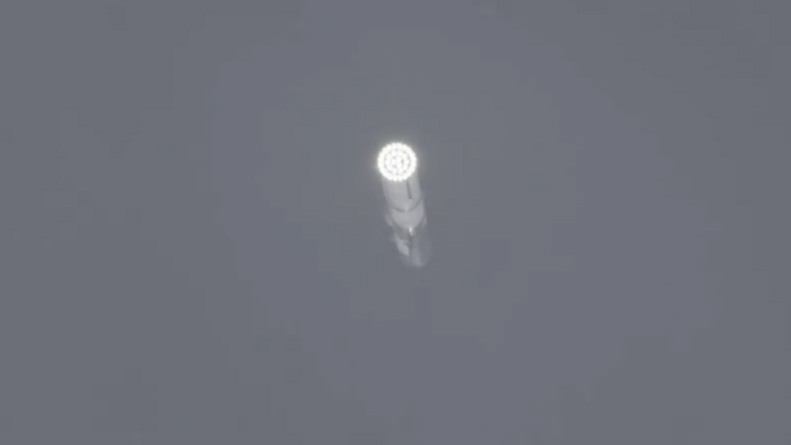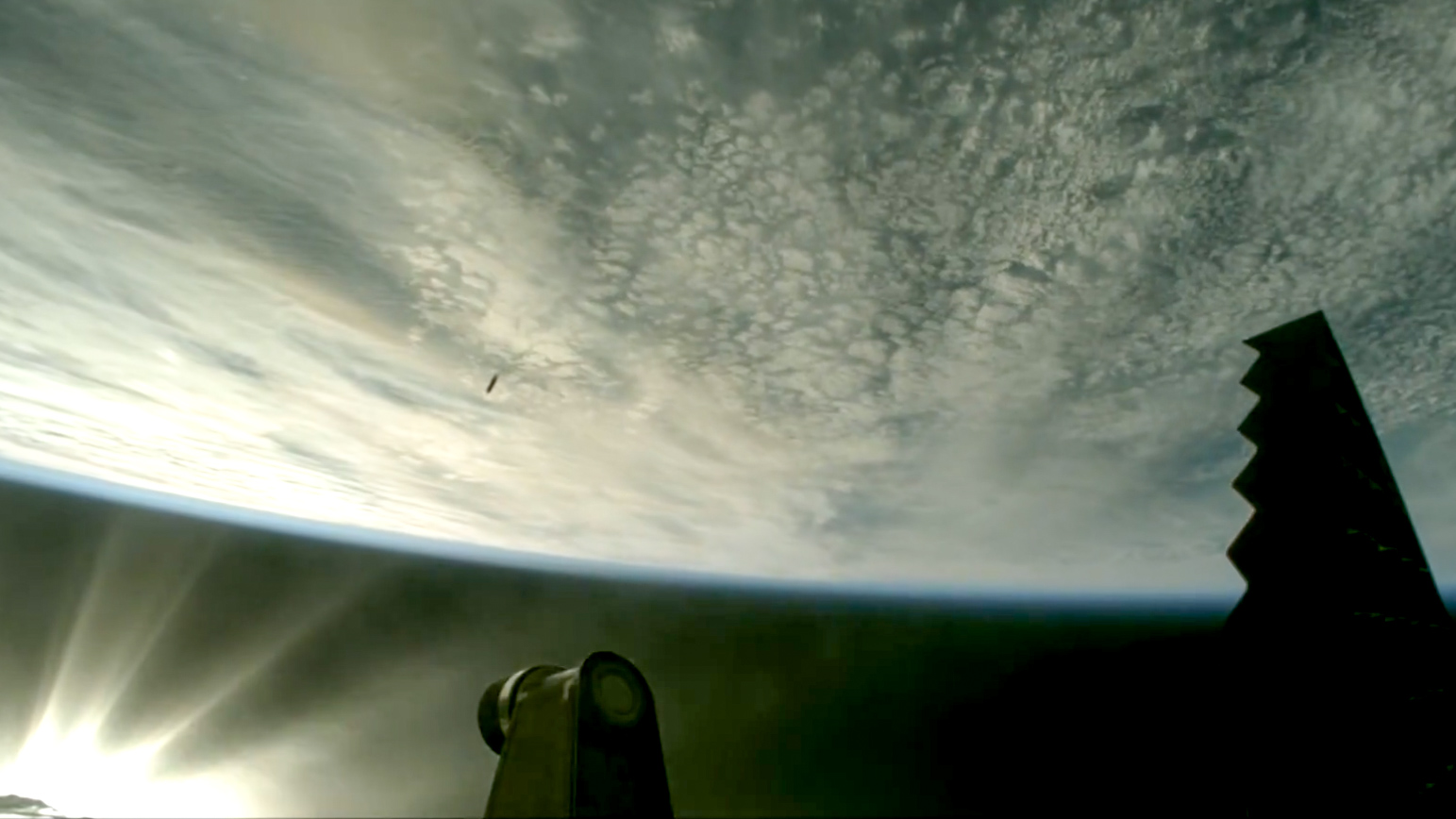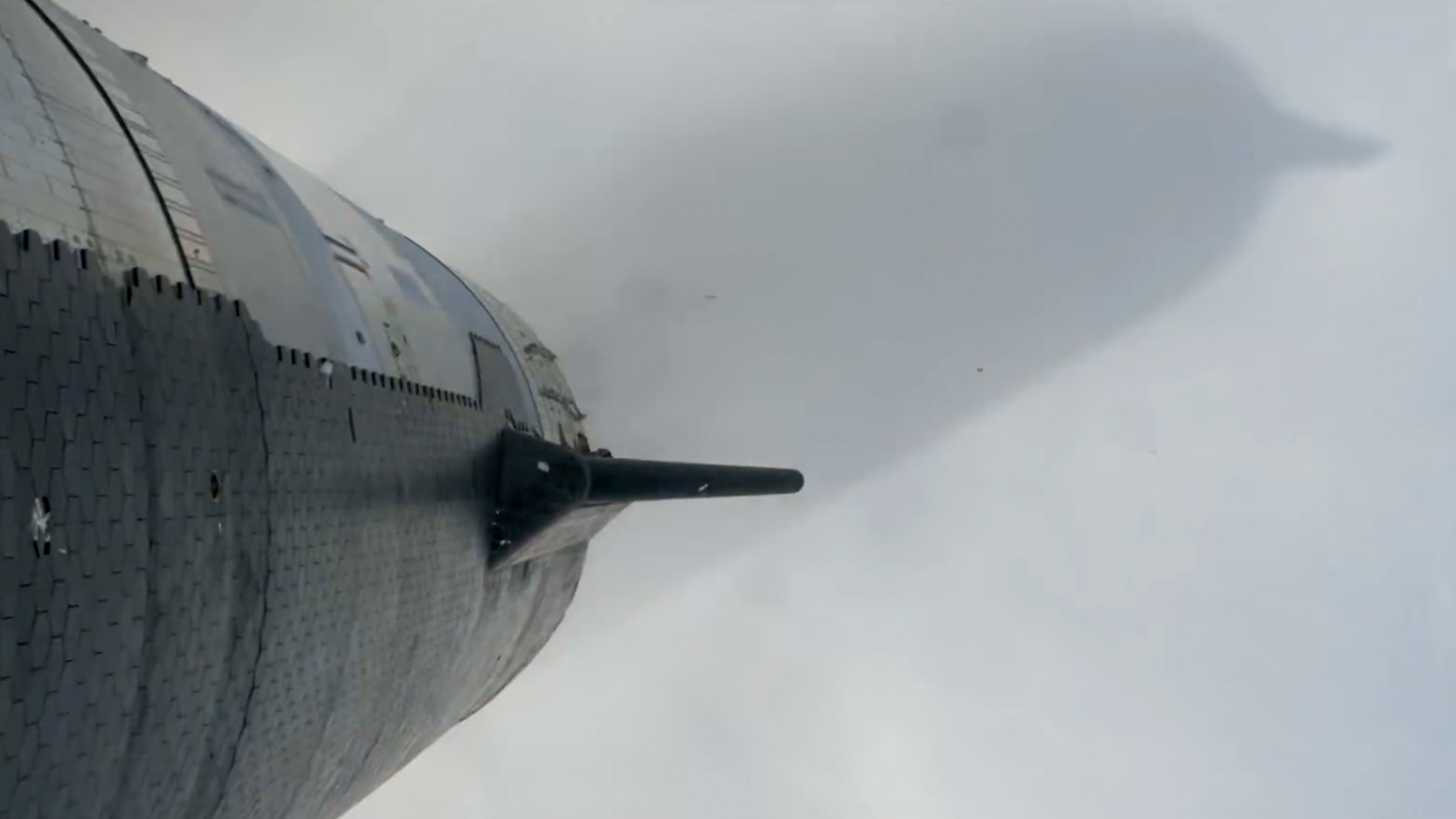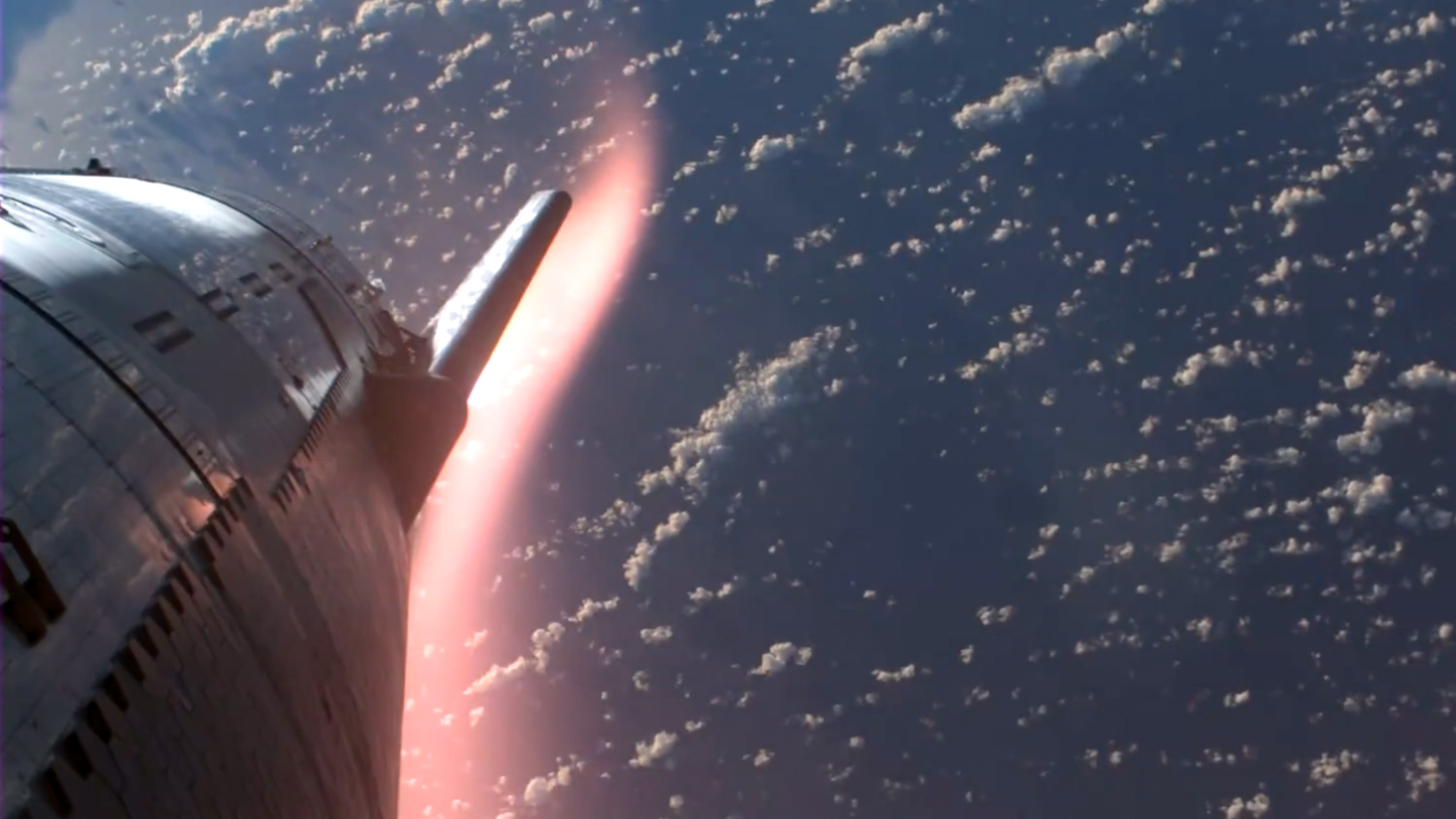SpaceX has revealed some new information regarding the third test flight of its massive Starship rocket.
The flight, which took place from Starbase, Texas, yesterday morning at 8:25 am CT, capitalized on previous test flights and accomplished a host of new objectives.
All 33 Raptor engines lit in a staggered sequence, and once throttled up, the world’s biggest rocket took flight for the third time.

All 33 Raptor engines burning (Credit: SpaceX)
As Starship climbed into the South Texas skies, the 33 engines continued to operate nominally until the hot stage separation, in which 30 of Super Heavy’s engines shut down as Starship lit its 3 sea-level and 3 vacuum Raptor engines and continued to space.
For the first time, the Super Heavy first stage, Booster 10, successfully performed a boost back burn and aimed for a splashdown just East of the launch pad in the Gulf of Mexico. According to the data displayed on the webcast, the booster reached a peak speed of 5750 km/h and an altitude of 106 km.

Super Heavy performing the boost backburn while Starship heads down range (Credit: SpaceX)
Unlike the Falcon 9, the Super Heavy is so big it does not need to do an entry burn however in one of the last bits of data available on the webcast, it showed the booster attempted to begin its landing burn around 1 km in altitude with only 3 engines lighting and 2 shutting off almost immediately after.
SpaceX has since confirmed that Booster 10 experienced a rapid unscheduled disassembly just 462 meters above the water’s surface, and it is likely that what remained of the booster hit the water at nearly the speed of sound.
While Booster 10 was meeting its fate in the Gulf of Mexico following a great performance, Ship 28 continued to burn all 6 of its Raptor engines and completed its first full-duration burn, inserting itself into its proper sub-orbital trajectory.

Starship just after Raptor shutdown (Credit SpaceX)
Ship 28 then began its coast phase and started a series of tests. The payload bay door, aka pez door, designed to eventually eject the full-size Starlink satellites, was first commanded to open 12 minutes into the flight. SpaceX has yet to confirm whether it managed to fully open/close the door. At 30:18 into the mission, the door appears to have dislodged into the payload bay, and we no longer got any live views inside the ship.
The next task was to re-light the first-ever Raptor engine in space, but due to the vehicle’s roll rates, SpaceX decided to postpone this until a future flight.
Ship 28 then began atmospheric entry, but the ship seemed to be partially out of control with the spin and eventually began to build up plasma. The heat shield was only half exposed, and the rest was bare stainless steel, taking the brunt of the forces of re-entry.

Ship 28 begins atmospheric re-entry (Credit SpaceX)
Thanks to Starlink terminals on board, SpaceX was able to provide incredible live views from a camera located on one of Starship’s flaps. The plasma began as a faint pink glow before rapidly growing and enveloping the vehicle while still maintaining a good data connection which has never before been possible.
Overall, SpaceX made many great advancements on this third test flight and will look to complete all of these on the fourth test flight, including a smooth splashdown of the Super Heavy booster and successful re-entry through the atmosphere for Starship.
When do you think the 4th test flight will occur, and will they fix the issues encountered during flight 3?
Questions or comments? Shoot me an email at rangle@teslarati.com, or Tweet me @RDAnglePhoto.

https://ift.tt/XE3nJwA
Science
No comments:
Post a Comment